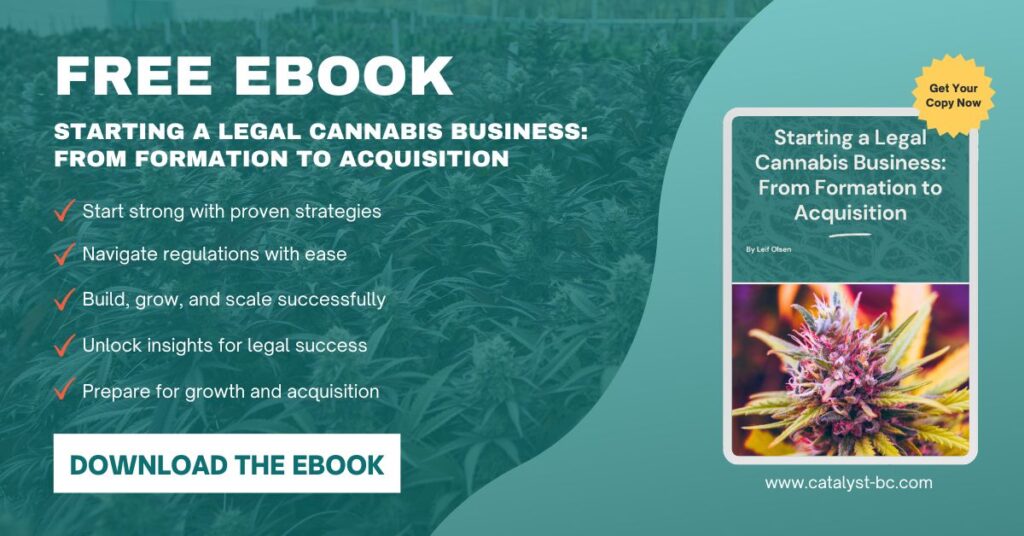THC compliance stands out as the main concern for hemp farmers in today’s world when it comes to hemp genetics. High CBD yields are essential but keeping a compliant crop that will not run the risk of destruction due to THC content is the most crucial consideration for a farmer. Today we’ll briefly look at cannabinoids, compliance, testing methods, and the importance of having a testing plan with reliable testing partners before you plant.
The U.S. Farm Bill defines hemp as cannabis that contains less than 0.3% total THC by dry weight. THC, CBD’s psychoactive constituent, is classified as a Schedule 1 drug by the Food and Drug Administration and is highly regulated. CBD is non-psychoactive and is not considered a Schedule 1 drug by the FDA and is not regulated (although recent CBD patents by GW Pharma will incur regulation). Interestingly, many modern CBD-rich hemp genetics derive from so-called “drug-type” cannabis strains that once contained high levels of THC. These genetics were bred over generations to minimize THC production and maximize CBD content.
The truth is that many CBD-rich hemp varietals are nearly indistinguishable from their THC-containing “marijuana” sisters. The visual appeal, aroma (terpene content), and structure can be almost identical between two different genotypes, one with THC and one that does not. When I first started breeding with high CBD/low THC genetics in 2011, it was next to impossible to tell the difference in cannabinoid content until we submitted samples to the lab for cannabinoid testing.
I assumed many of the plants would have high THC content that contained very low THC and had high amounts of CBD. Testing laboratories across the U.S. have opened their doors to hemp growers. Now that hemp is legal in all 50 states, farmers can mail their samples to labs in other States if they cannot find a viable alternative locally.
Colorado has several licensed labs that will accept samples mailed from anywhere in the U.S. It is also essential to understand your State’s requirements for THC testing. Some States test for “total THC”, which is Delta9 THC combined with converted THCA, and others test for only Delta9 THC. Also, understanding the testing method used by your State can help determine a testing partner. In Colorado, the Department of Agriculture uses Gas Chromatography (GC) to determine cannabinoid content. As a result, Foundation Seeds performs GC testing in-house and utilizes High-Performance Liquid Chromatography (HPLC) and Ultra Performance Liquid Chromatography (UPLC) via 3rd party laboratories for confirmation and verification of our in-house results.
What does this mean for you as a CBD hemp farmer? It means you can’t always tell a book by its cover. This makes 3rd party analytical testing paramount to ensuring a successful and compliant crop. We recommend that farmers begin cannabinoid testing once the plants have started flowering every 5-7 days throughout the flowering cycle until harvest. Advanced testing can save you money in avoiding non-compliant crop losses and provide you with valuable crop data to help make informed decisions for the next crop and offer it to a potential buyer or processing partners and commodity traders.
We test all our genetics before releasing and provide our customers with detailed CBD, CBG, and THC cannabinoid maturation curves to understand harvest timelines and cannabinoid content. Our founders bred and have been working with the leading hemp genetics on the market and producing feminized cannabis seeds since 2012.
Eric is the Director of Breeding and Genetics at Catalyst BC. Article originally posted on the Fondation Seeds website.
Additional Resources
Consulting Services For Cannabis, Hemp, Psilocybin, and Natural Medicine
- Consulting Services Overview
- Business Strategy
- Financial Planning
- Cannabis, Hemp, Psilocybin, & Natural Medicine Licensing and Applications
- Facility Design
- StartUp Support
- Genetic Development
- Business Turnaround
- Operational Optimization
- Vertical Farming
- Controlled Environmental Agriculture (CEA)
- State and Country Services Directory
- Blog
- Home
Testimonials and Public Relations
Latest Articles
- Cannabis 280E Compliance and COGS Optimization Expert StrategiesThe cannabis industry operates under a unique federal tax burden imposed by Internal Revenue Code (IRC) §280E. While state legalization has flourished, this provision, which denies deductions for ordinary business expenses of trades dealing in controlled substances, remains the single greatest threat to cannabis profitability.
- Owner’s Rep for Cannabis Dispensary Buildout: Expert Compliance & Project ManagementNavigating the highly-regulated world of a cannabis dispensary buildout requires specialized expertise beyond standard construction. The complexity of securing a final operating license, controlling costs, and preventing opening delays for a cannabis dispensary hinges on professional guidance. This is why securing an experienced Owner’s Rep for Cannabis Dispensary Buildout is a critical first step.
- The Indispensable Owner’s Rep for Cannabis Cultivation Facility Buildout: Expert Project Management to Prevent Cost OverrunsIn this high-stakes arena, the Owner’s Rep for Cannabis Cultivation Facility buildout is the crucial strategic partner. They are the expert professional who ensures the owner’s vision is translated into a successful, operational, and profitable reality.
- Cannabis Dispensary Compliance: Training, Inventory & ProfitabilityIn today’s regulated cannabis market, cannabis dispensary compliance is not optional—it is the foundation of a sustainable and profitable retail business. Every dispensary, from boutique shops to multi-state operators, must follow strict dispensary regulatory compliance standards, maintain accurate cannabis inventory management systems, and invest in ongoing cannabis dispensary training programs.
- Beyond Compliance: Implementing a Cannabis Dispensary Secret Shopper ProgramAs a cannabis retail owner, you operate in a high-stakes environment where federal prohibition meets state-regulated commerce. Your retail floor is not just a sales hub—it’s a constant target for mandatory inspection and the front line for brand differentiation. The most critical tool for navigating this complex reality is the professional, recurring Cannabis Secret Shopper program.
- Architects of the Cannabis Industry: What Defines An Expert Canna Consultant?An expert Canna Consultant is the strategic architect and operational engineer of a cannabis venture. They are specialized cannabis industry consultants who translate ambiguous legislation into profitable business processes.
Explore Our Articles
cannabis applications Cannabis Bar Cannabis Business Optmization cannabis careers Cannabis Compliance Cannabis Consumption Cannabis Consumption Bar Cannabis Inventory Management Systems Cannabis Investors cannabis jobs Cannabis Legalization cannabis licensing Cannabis Lounge cannabis marketing Cannabis Operational Procedures cannabis outreach Cannabis Regulations Cannabis Security Cannabis Software Cannabis Startup Cannabis Supply Chain Cannabis Technology Colorado controlled environment agriculture Cultivation cultivation facility Dispensary Design facility design Financial Planning HVAC HVACD Iowa Kansas Legal Update Legislation Medical Cannabis Minnesota Natural Medicine Nebraska New York Odor Control Oregon Psilocybin Psychedelics Recreational Cannabis
Free Ebook – Start Your Own Legal Cannabis Business








